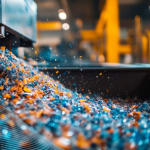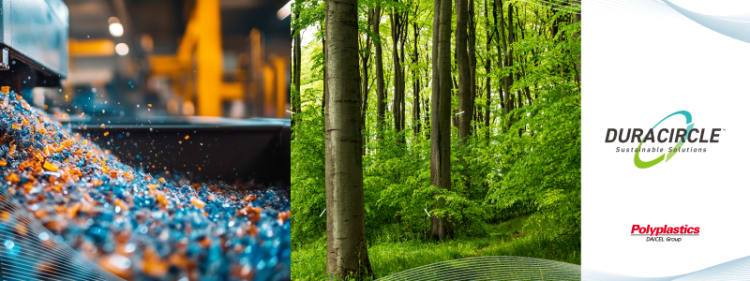
Polyplastics Group, a global supplier of engineering thermoplastics, will present an updated sustainability strategy at K 2025 in Düsseldorf on Oct. 8–15 (Hall 7A/B02). The company plans to announce technologies aimed at lowering its environmental footprint and supporting a circular economy, alongside quantified greenhouse gas and product carbon footprint targets. The Daicel group, which includes Polyplastics, has set two goals for 2030 versus 2018 baselines, a 50% reduction in greenhouse gas emissions and a 30% reduction in cradle-to-gate product carbon footprint. The program is being advanced under the company’s Duracircle Sustainable Solutions framework and encompasses chemical and solvent-based recycling, bio-based feedstocks and digital tools to improve material recovery.
Development priorities include POM-to-POM chemical recycling, PBT-to-PBT solvent-based recycling that enables separation of constituents in multi-material streams, and AI-aided mechanical recycling. Polyplastics is also pursuing bio-based p-hydroxybenzoic acid, a key monomer for its Laperos liquid crystal polymer. The company indicates that multiple routes are being evaluated to derive green PHBA, with the expectation that a transition to circularity will require a combination of approaches and technologies. “As a leading material supplier, we are creating strong partnerships with the rest of the industry, enabling us to rethink and redesign plastics so that we can deliver strong economic, social, and climate benefits,” said Hidekazu Kitayama, managing director of Polyplastics Europe GmbH.
Recycling technologies under development
Polyplastics reports progress on POM-to-POM chemical recycling designed to return material to engineering plastics with 100% re-generation. The technology is currently in a demonstration phase with a targeted launch in 2028. In parallel, PBT-to-PBT solvent-based recycling is being developed to segregate glass-reinforced PC/PBT into its GF, PC and PBT constituents. According to the company, this process is intended to enable the recyclability of waste PBT-based compounds that are presently difficult to recover, and reflects a broader responsibility to continue developing recycling routes for plastics regarded as non-recyclable.

Bio-based feedstocks and polymers
For bio-based PHBA, Polyplastics states that several methods are under consideration to obtain green feedstock. The company views circularity as a multifaceted transition that will rely on a combination of circular-attributed approaches. Beyond monomers, the sustainability program also targets molecular structured bio-based polymers. A joint development project between Daicel and Polyplastics leverages Daicel’s wood chemical technologies, with the objective of establishing a new polymer base that can be produced solely from biomass.
At K 2025, Polyplastics intends to detail these initiatives and progress against its emissions and product carbon footprint goals, while outlining next steps for technology demonstration and commercialization.


